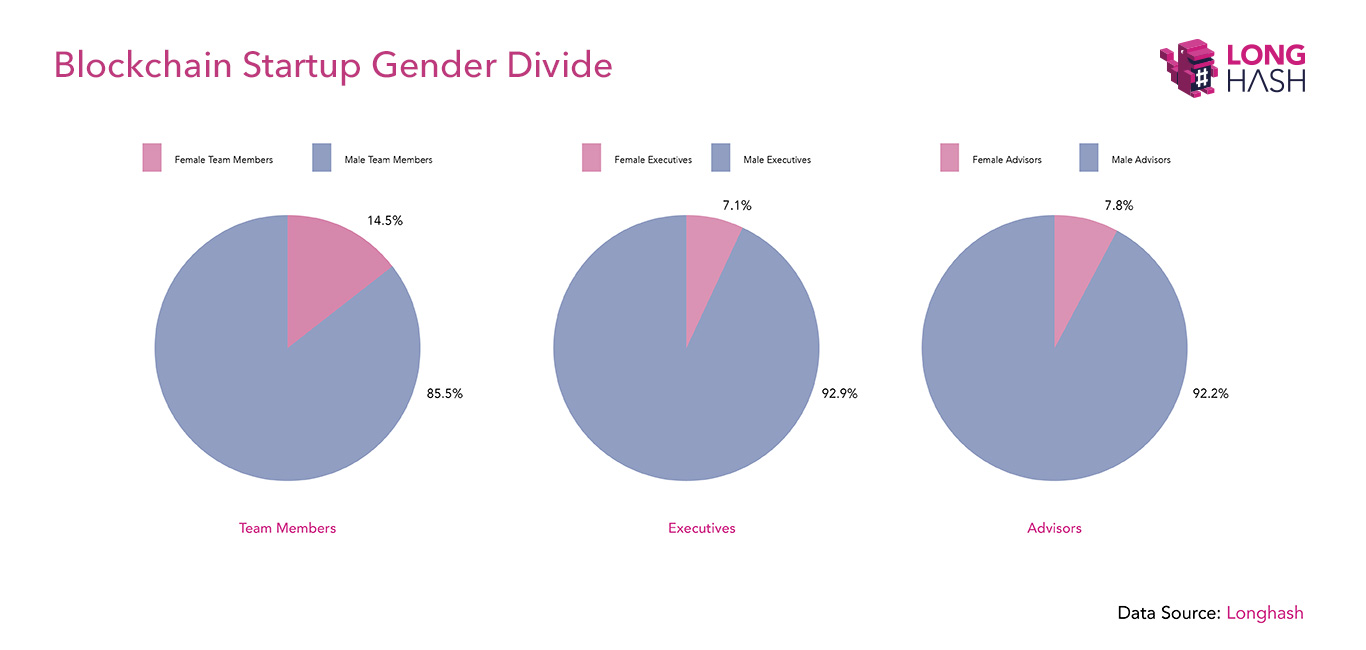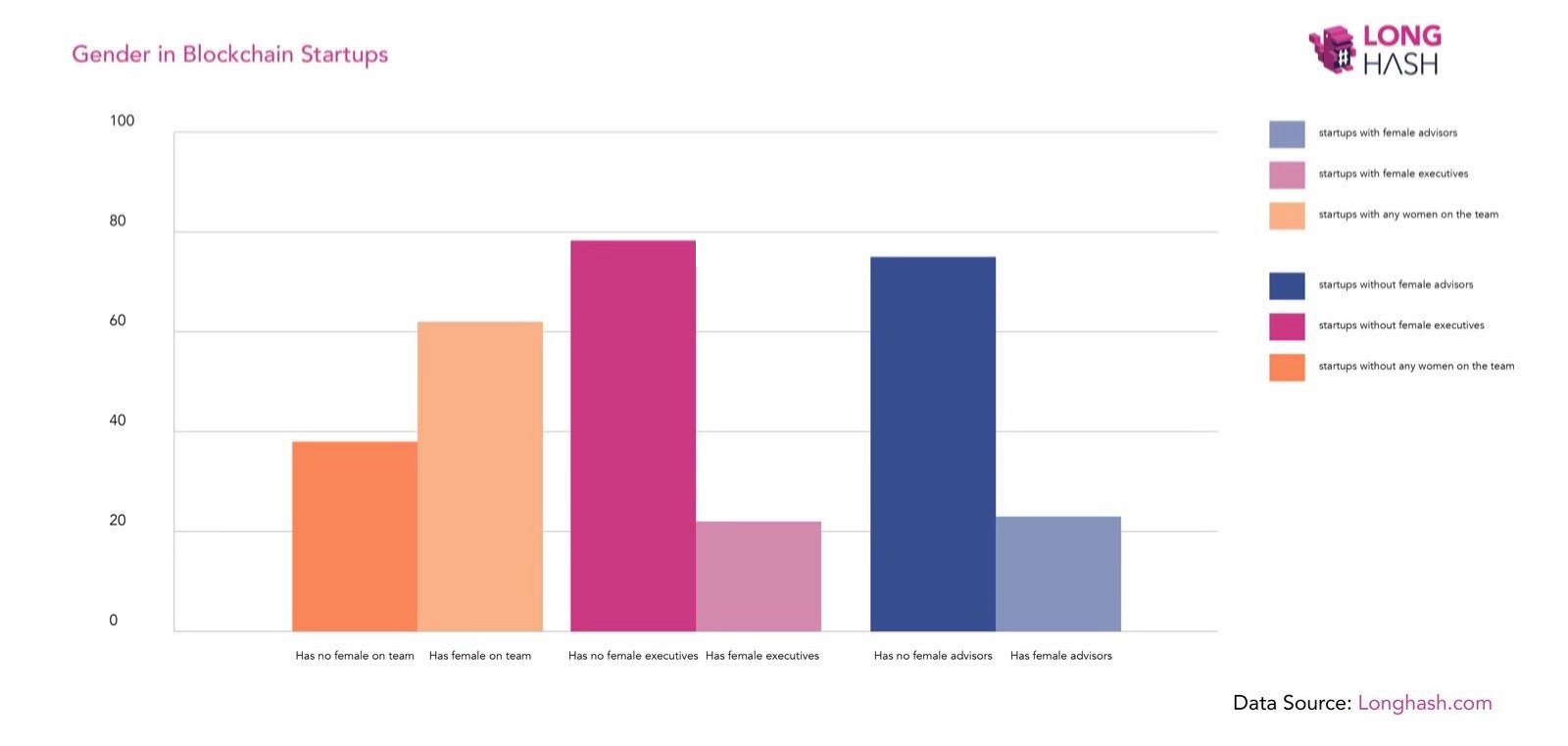Latest news about Bitcoin and all cryptocurrencies. Your daily crypto news habit.

A new study confirms the crypto industry has a lot of progress to make to bridge the gender gap. It shows that startups conducting ICOs are still markedly male-dominated – over 85 percent of the team members in the surveyed companies are men. The data also suggests women are even less likely to hold executive and advisory positions.
Also read: New Platforms Track Major Stablecoin Markets
Four out of Five Startups Don’t Have a Female Executive
The research conducted by Longhash covers 100 upcoming initial coin offering (ICO) projects listed by ICO Rating, a website that tracks new token sales. The crypto analysis platform has collected data about the overall gender balance of each team, the number of female executives, including founders, as well as the share of women among their advisors.
According to the report, 14.5 percent of the team members are female, with only 7 percent of the executive roles occupied by women. Their number among advisors is just a touch higher – 8 percent. Furthermore, almost four out of five startups (78 percent) don’t have a single female C-level executive and 75 percent don’t have female advisors.
The survey is based on information published on the projects’ websites. The companies have listed a total of 1,062 team members, including 326 founders and senior executives, and 473 advisors. Another key finding is that well over a third of the companies, or 37 percent, have no female employees at all. The authors believe these are telling numbers and also warn they might even be overly optimistic:
In the case of advisors, if you discount two outlying startups that had large advisory boards with more than 25 percent women, the overall percentage of women in advisory roles drops to under 6 percent. And in the case of executives, there was only one startup out of the entire 100 we looked at that had more than one woman in an executive role.
ICOs With Female Advisors Less Likely to Be Managed by a Woman
 Researchers at Longhash have also found some interesting correlations. It turns out, for example, that crypto companies with a woman on their advisory board are “slightly less likely” to have a female member of their executive team.
Researchers at Longhash have also found some interesting correlations. It turns out, for example, that crypto companies with a woman on their advisory board are “slightly less likely” to have a female member of their executive team.
On the other hand, startups that have at least one woman in an executive role appear to be more likely to have a female advisor too. Longhash warns, however, that in both cases the differences as well as the samples are relatively small to draw reliable conclusions.
The authors of the report also note that the tech industry in general remains largely male-dominated. They point to other studies in the field indicating less pronounced but nevertheless evident imbalance. For instance, a study published by Statista on March 8, the International Women’s Day, shows that women made up between 26 and 43 percent of the employed in eight leading tech companies last year. And in 2015, they held 25 percent of the executive roles. Also, according to another study released by software platform Carta in September of this year, less than a third of the employees at small tech startups are women.
Some representatives of the crypto industry have tried to address the issue. Following accusations that its leadership had become an “old boys’ club,” Switzerland’s Crypto Valley Association recently elected two female members to its board. According to a recent report, the upcoming major reshuffle of its management team will not affect their roles.
What is your opinion about the gender imbalance in crypto startups? Share your thoughts on the subject in the comments section below.
Images courtesy of Shutterstock, Longhash.
Express yourself freely at Bitcoin.com’s user forums. We don’t censor on political grounds. Check forum.Bitcoin.com.
Disclaimer
The views and opinions expressed in this article are solely those of the authors and do not reflect the views of Bitcoin Insider. Every investment and trading move involves risk - this is especially true for cryptocurrencies given their volatility. We strongly advise our readers to conduct their own research when making a decision.

